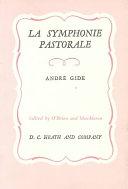“It is better to be hated for what you are than to be loved for what you are not.”
Frequently misattributed to Marilyn Monroe or Kurt Cobain.
Source: https://books.google.com/books?id=xUtdDnEhkMMC&pg=PT12&lpg=PT12#v=onepage&q&f=false
Source: Autumn Leaves, Philosophical eLibrary, 2012, (Feuillets d'automne, 1941, trans. Jeanine Parisier Plottel)


